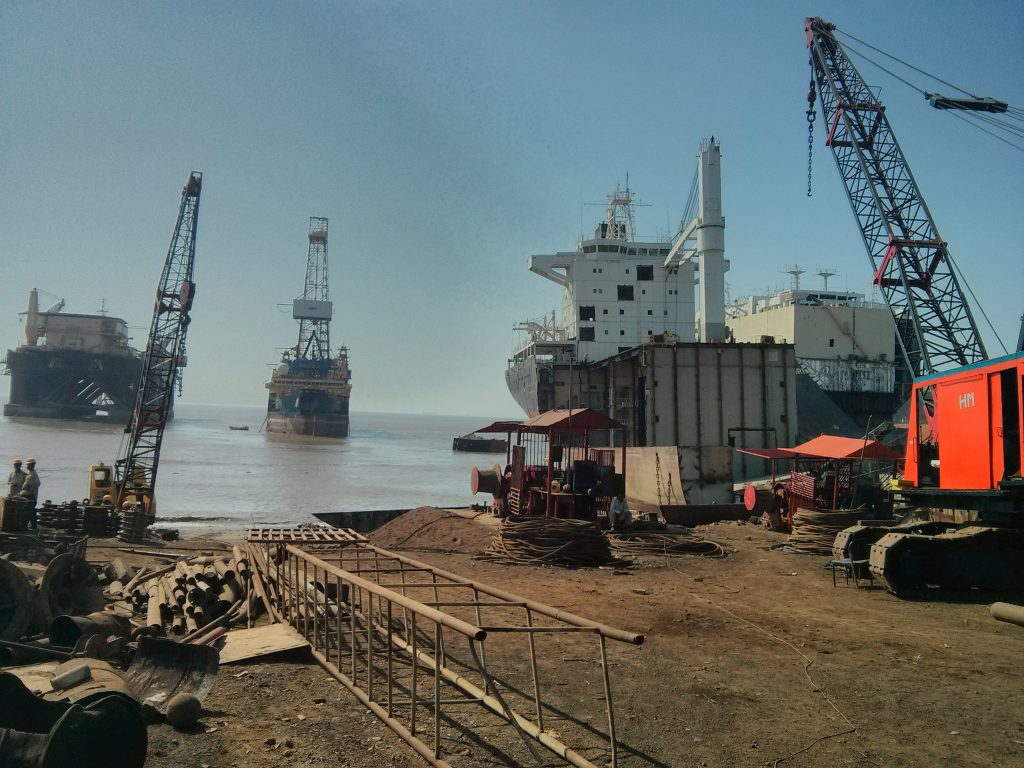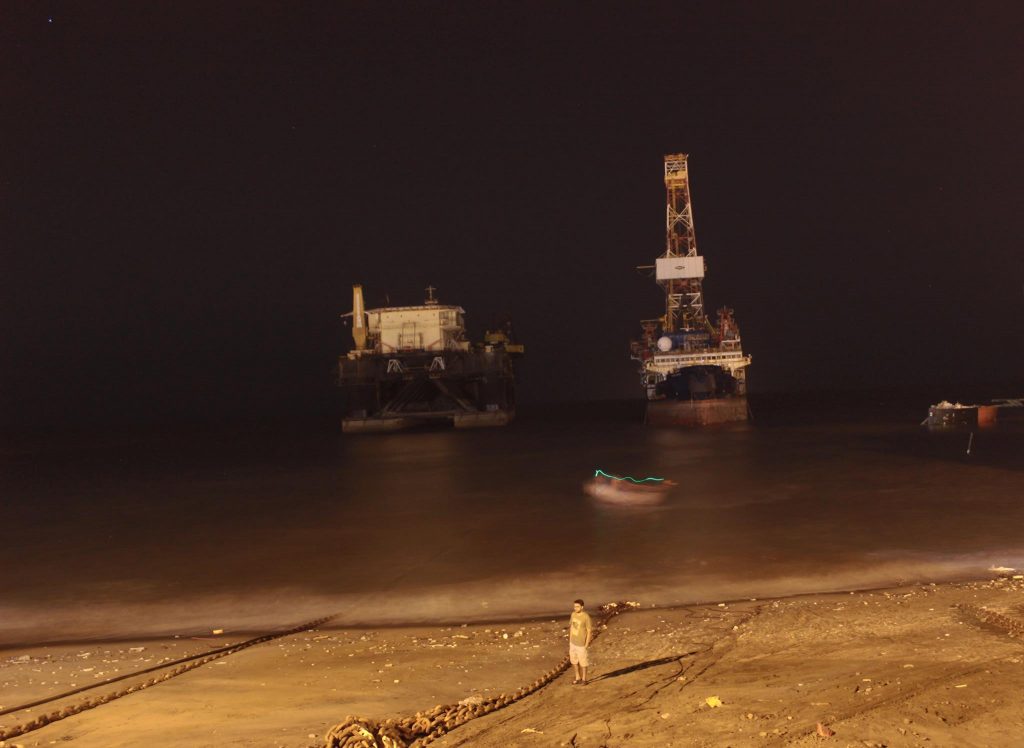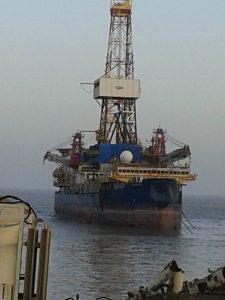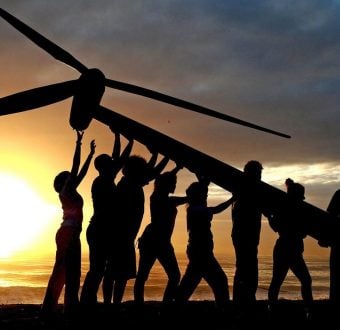One year ago the drill ship Noble Discoverer was in Everett, Washington preparing to head north as one of two drilling rigs contracted by Royal Dutch Shell in their quest to find oil beneath the surface of the Arctic Ocean. Today the Discoverer rests on a beach in Alang, India ready to be dismantled and sold for scrap.
These photos of the drill ship’s last destination (all of which were found on public websites) are a powerful illustration that Big Oil’s Arctic ambitions were flawed from the beginning. It is important to recall that the Discoverer is actually the second of Shell’s drilling rigs to end up on the scrap heap, following the Kulluk, which slipped its tow line in a fierce winter storm and ended up crashing on an Alaskan beach in late 2012.

Noble Discoverer facing Alang beach. Credit: K. Patel. Source: Google
Arctic drilling was always a flawed business model: seeking to operate in a region where oil spill response would be impossible and searching for oil that would only be burned in a world where temperatures had soared far beyond the 2 degree limit. After Shell’s first exploratory well came up dry in 2015 — in an environment of widespread protest and falling oil prices — the company decided to end its quixotic $7 billion Arctic venture and withdraw from the region “for the foreseeable future.”

Noble Discoverer facing Alang beach, view at night. Credit: H. Modi. Source: Facebook
That dry well was the end of the road for the Discoverer as well. Originally built in 1966, it was one of the oldest operating drillships in the industry, and an extremely poor choice to drill in one of the most unforgiving environments in the world.
In truth, the Discoverer was always an accident waiting to happen. Upon arriving in Dutch Harbor, Alaska to prepare for the 2012 drilling season, the ship dragged its anchor and nearly grounded itself on the beach. When it returned to Dutch Harbor later that year an engine backfire caused a fire onboard the ship. A U.S. Coast Guard inspection found a number of safety and environmental violations, including a malfunctioning oily waste separator that led to illegal pollution discharges into the ocean. These violations led to a criminal investigation, eight felony violations and a $12.2 million fine for Noble Drilling, the ship’s owner.

Noble Discoverer moored in front of Alang beach. Credit: I.M. Memon. Source: Facebook
The EPA also found that required air pollution control devices were not functioning or not turned on — leading to a $1.1 million fine. The Discoverer was also found to have used its main propulsion systems even while anchored at the drill site — originally considered an emergency measure and more evidence that the ship was not Arctic ready.
Amazingly the problems continued in 2015. A routine inspection in Hawaii found that the oily water separator was still not working. Thankfully the Discoverer did not drill during the 2015 season, as Shell only received permission for one well that was drilled by the second rig, the Polar Pioneer.
For the record, the rest of Shell’s fleet didn’t fare much better than the Discoverer. Between crushed oil spill response equipment to a mission-critical icebreaker with a gash in its hull, Shell never seemed ready to handle Arctic conditions. And as Shell’s recent pipeline leak in the Gulf of Mexico shows, offshore oil drilling is inherently risky and difficult to clean-up even in temperate waters.
We don’t know who those awesome Indian kids are dancing on the Discoverer’s former helicopter landing pad, but we can certainty appreciate the sentiment.
Big Oil seems to be giving up on the Arctic for the time being, but President Obama is currently considering another round of lease sales for the Chukchi and Beaufort Seas in the next five years. Take action today to ask Obama to end offshore oil leasing in the Gulf of Mexico and the Arctic.



